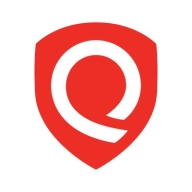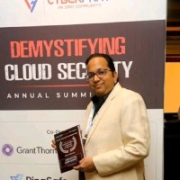

Qualys Web Application Scanning and SonarQube Server are two distinctive products competing in the field of security and code quality management. Based on user feedback, Qualys has a slight edge in vulnerability management for web applications, while SonarQube excels in code quality assurance with its comprehensive language support and integration capabilities.
Features: Qualys Web Application Scanning is renowned for its vulnerability management, providing minimal false positives, ease of use particularly in Linux environments, and robust API access for automation and CI/CD pipeline integration. On the other hand, SonarQube Server excels in deep code analysis, supports a wide range of programming languages, and integrates seamlessly into development environments, making it an ideal tool for maintaining high code quality standards.
Room for Improvement: Qualys Web Application Scanning could enhance asset organization, reduce false positives further, and improve API integrations and reporting flexibility. SonarQube Server may benefit from increasing analysis speed, improving compatibility with varied project configurations, and enriching its security features alongside providing better API documentation and simplifying its user interface.
Ease of Deployment and Customer Service: Qualys Web Application Scanning offers versatile deployment options across various environments, alongside generally strong customer support but needs better engagement. SonarQube Server faces some challenges with technical support effectiveness but provides similar deployment flexibility. Qualys is noted for its more responsive and holistic customer service compared to SonarQube.
Pricing and ROI: Qualys Web Application Scanning is considered expensive but offers value through extensive features, leading to a favorable ROI by reducing web application failure rates. SonarQube Server, being open source, provides cost benefits with minimal operational costs, though premium features have additional charges. Its pricing remains reasonable for extensive code quality control, offering solid ROI for enhancing development cycles.
I have seen a return on the investment from SonarQube Server (formerly SonarQube) because the value it adds relates to static code analysis and vulnerability assessments needed for our FDA approval process.
We see productivity increasing based on the fact that the code review is mostly automated, allowing the developer to fix the code themselves before assigning it to someone else to review, thus receiving that ROI.
It's more about maintaining standards and being able to prevent issues before they occur.
They have various options in the vulnerability management process, and when we initially bought our license, we didn't realize we needed PCI for better results, which isn't included in the default configurations.
Once we purchase the license, we have access to top-notch support.
I have dealt with Qualys's technical support, and any enhancements are challenging.
The community support is quite effective.
I would rate the technical support for SonarQube Server (formerly SonarQube) as a 10 because we have not faced any specific issues that required us to contact tech support, which is a very rare case.
They showed us where we can actually get those granular level reporting extracted for Excel, which was a quick guide.
My concern remains the lack of deep dive analysis and that it produces similar vulnerability results as other tools such as Nessus based on version checks instead of real impact checks.
It is licensed for assets, so we just contact the team for additional licenses if needed.
At one point, there was a limitation on reporting for 100,000 assets at a time.
I would rate the scalability of SonarQube Server as a 10 because we can configure the server to scan multiple projects based on the number of lines.
I find SonarQube Server (formerly SonarQube) very scalable because we're able to create a new repository and integrate all the tools on that project and it just works.
I think SonarQube Server (formerly SonarQube) is stable, and we did not face any problems unless there was a power outage or if the LAN cable was plugged out.
With the growing reliance on AI, Qualys Web Application Scanning should be updated to handle AI-based applications and LLM-based attacks.
Qualys Web Application Scanning does IP-level testing, requiring direct input of credentials, and can only scan a few pages to provide known generic vulnerabilities.
I would like it to be cheaper because it is a bit expensive compared to competitors like Tenable Nessus.
If I fix some vulnerabilities today, they reappear in the next scan, and there will be completely different issues that need to be fixed.
As soon as I see that they've got a new feature that integrates AI that is not as generative as other GenAI platforms that actually generate the code and help developers develop faster, I believe that capability is lacking.
Instead of grouping, I would prefer to scan the code as part of development and then generate a report on a daily basis among different units or projects, which is currently complicated.
They offer discounts on bulk licenses, making it cheaper compared to competitors like Veracode DAST.
I find it a bit expensive compared to other competitors.
Regarding pricing, I think for personal use, it is costly, but if organizations are ready to pay, then it is fine as they are using it.
I would rate the pricing for SonarQube Server (formerly SonarQube) as an 8, where 1 is very cheap and 10 is very expensive, because Coverity is very expensive, and while SonarQube is not cheap, it is still less expensive than Coverity.
They always offer around a two-year contract, but we always take a one-year contract because it's expensive.
The freemium version of SonarQube Server offers excellent value, especially compared to the high costs of Snyk.
It effectively detects vulnerabilities like the OWASP Top 10 without any issues in reporting.
Credential scanning is very effective because it goes in-depth into the system, crawling the pages, and reporting on vulnerabilities.
Qualys Web Application Scanning is accurate and provides minimal false positives.
Some of the static code analysis capabilities are the most beneficial.
The most valuable features of SonarQube Server (formerly SonarQube) for us include having control of the rules, enabling and disabling them.
We use SonarQube Server's centralized management and visualization of code quality metrics on the dashboard because that's the executive dashboard that we send to the executives to show where we are in terms of quality, security, and where the company can improve.
| Product | Market Share (%) |
|---|---|
| SonarQube Server (formerly SonarQube) | 20.8% |
| Qualys Web Application Scanning | 2.0% |
| Other | 77.2% |


| Company Size | Count |
|---|---|
| Small Business | 8 |
| Midsize Enterprise | 6 |
| Large Enterprise | 27 |
| Company Size | Count |
|---|---|
| Small Business | 32 |
| Midsize Enterprise | 21 |
| Large Enterprise | 75 |
Qualys Web Application Scanning (WAS) is a fully cloud-based web application security scanner. The scanner will automatically crawl periodically and test web applications to discover potential vulnerabilities, including cross-site scripting (XSS) and SQL injection. The consistent testing equips the automated service to generate consistent results, lessen false positives, and offer the ability to scale to protect thousands of websites effortlessly.
Qualys Web Application Scanning is bundled with different scanning technology to carefully scan websites for malware infections and will send notifications to website owners to assist in preventing blacklisting and brand reputation damage. As digital transformation takes place in various organizations, Qualys WAS gives organizations the ability to track and document their web app security status through its interactive reporting capabilities.
Qualys WAS empowers organizations to remediate any web application vulnerabilities quickly. Some of the key tools offered are:
Benefits of Qualys Web Application Scanning
Qualys Web Application Scanning offers many benefits, including:
Reviews from Real Users
Qualys Web Application Scanning stands out among its competitors for a variety of reasons. Two of those reasons are its progressive scan and quick detection of vulnerabilities.
P.K., a senior software developer at a tech vendor, writes, "The feature that I have found most valuable is the progressive scan. It is good. It's done in 24 hours."
Nagaraj S., lead cybersecurity engineer at a tech service company, notes, "I have found the detection of vulnerabilities tool thorough with good results and the graphical display output to be wonderful and full of colors. It allows many types of outputs, such as bar and chart previews."
SonarQube Server enhances code quality and security via static code analysis. It detects vulnerabilities, improves standards, and reduces technical debt, integrating into CI/CD pipelines.
SonarQube Server is a comprehensive tool for enhancing code quality and security. It offers static code analysis to identify vulnerabilities, improve coding standards, and reduce technical debt. By integrating into CI/CD pipelines, it provides automated checks for adherence to best practices. Organizations use it for code inspection, security testing, and compliance, ensuring development environments with better maintainability and fewer issues.
What are the key features of SonarQube Server?Many industries implement SonarQube Server to uphold coding standards, maintain security protocols, and streamline their software development lifecycle. In sectors like finance and healthcare, adhering to regulations and ensuring reliable software is critical, making SonarQube Server invaluable. It is often integrated into CI/CD pipelines, ensuring that code changes meet set standards before deployment. This approach enhances productivity and maintains compliance with industry-specific requirements.
We monitor all Application Security Tools reviews to prevent fraudulent reviews and keep review quality high. We do not post reviews by company employees or direct competitors. We validate each review for authenticity via cross-reference with LinkedIn, and personal follow-up with the reviewer when necessary.